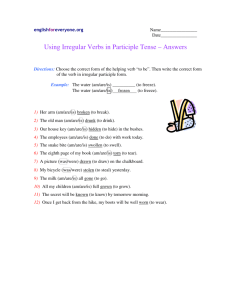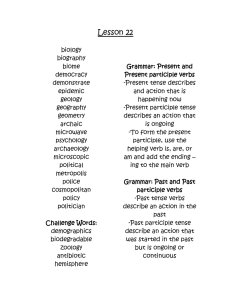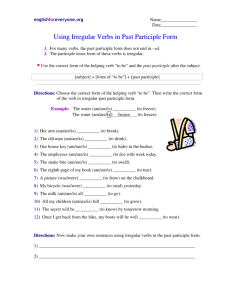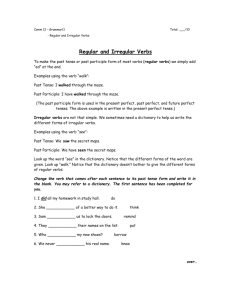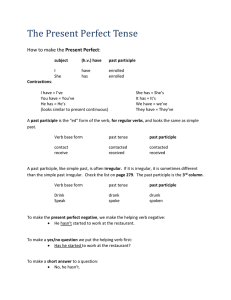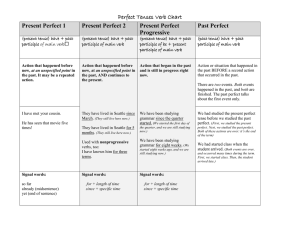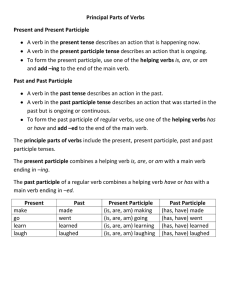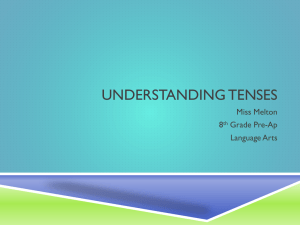Irregular Verbs
advertisement
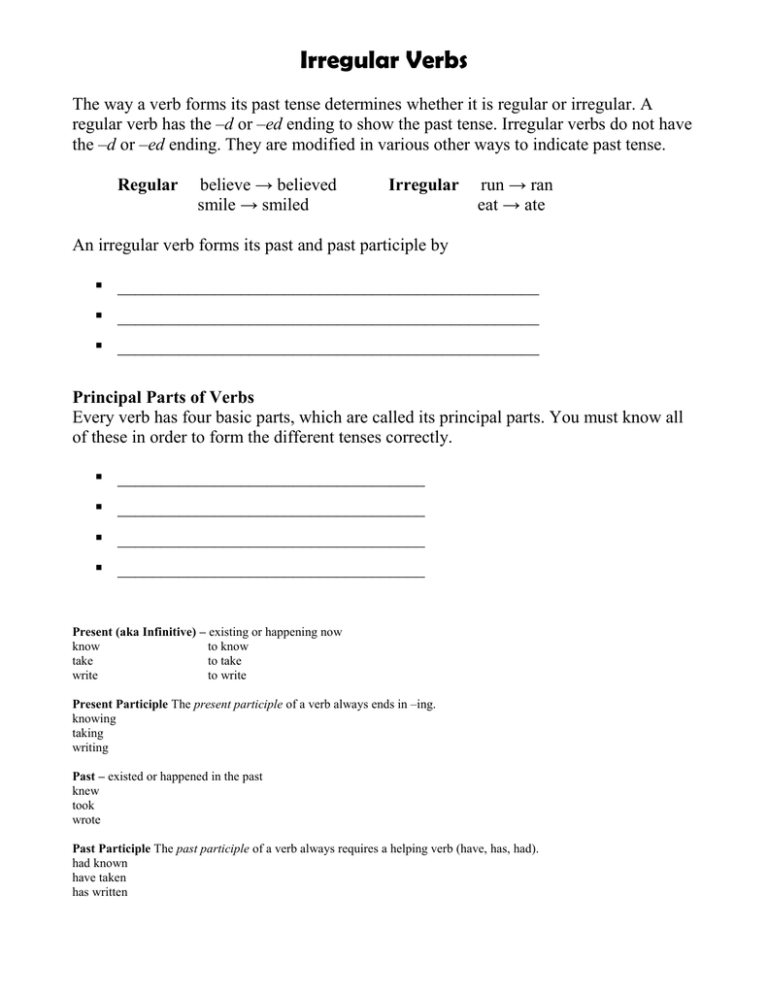
Irregular Verbs The way a verb forms its past tense determines whether it is regular or irregular. A regular verb has the –d or –ed ending to show the past tense. Irregular verbs do not have the –d or –ed ending. They are modified in various other ways to indicate past tense. Regular believe → believed smile → smiled Irregular run → ran eat → ate An irregular verb forms its past and past participle by ________________________________________________ ________________________________________________ ________________________________________________ Principal Parts of Verbs Every verb has four basic parts, which are called its principal parts. You must know all of these in order to form the different tenses correctly. ___________________________________ ___________________________________ ___________________________________ ___________________________________ Present (aka Infinitive) – existing or happening now know to know take to take write to write Present Participle The present participle of a verb always ends in –ing. knowing taking writing Past – existed or happened in the past knew took wrote Past Participle The past participle of a verb always requires a helping verb (have, has, had). had known have taken has written
